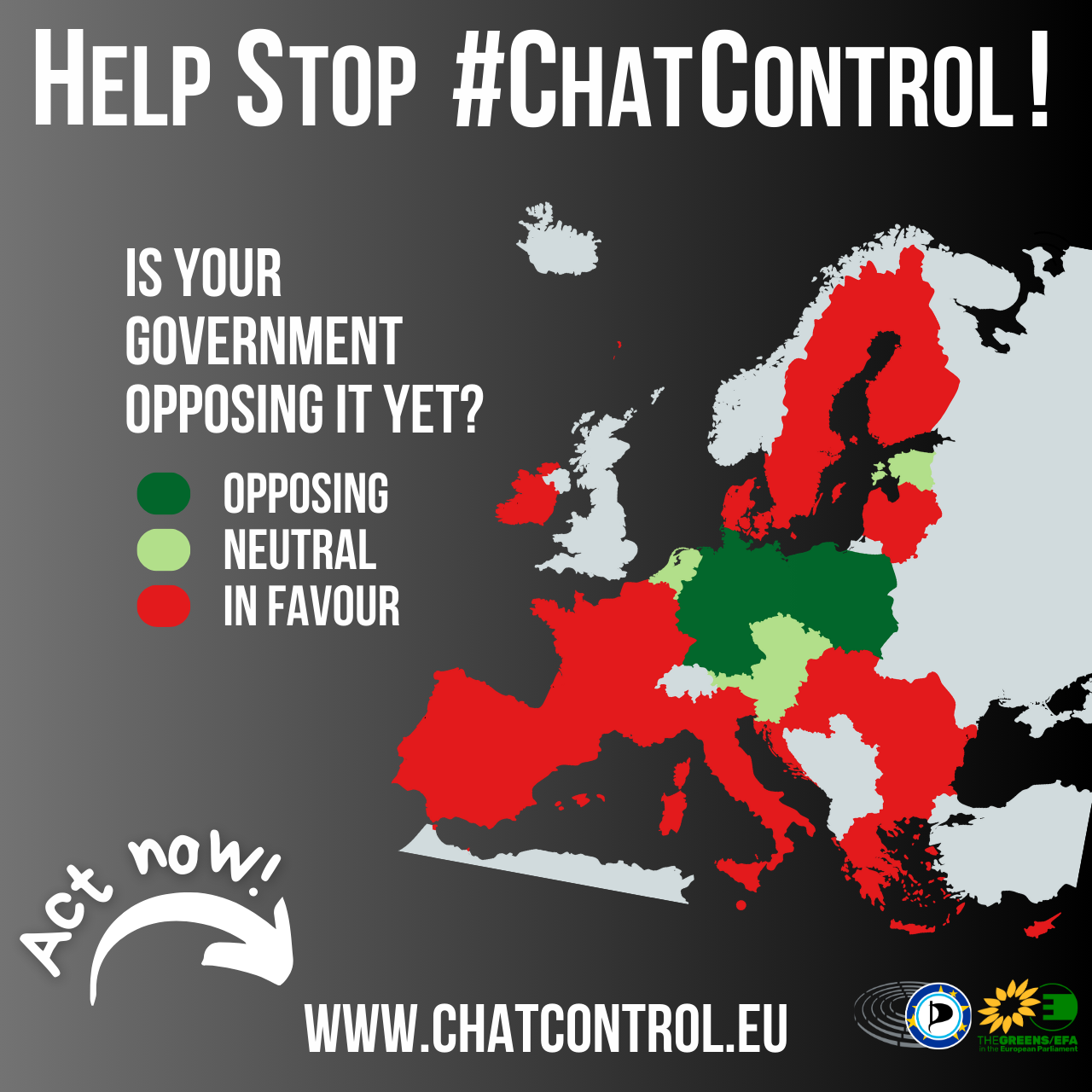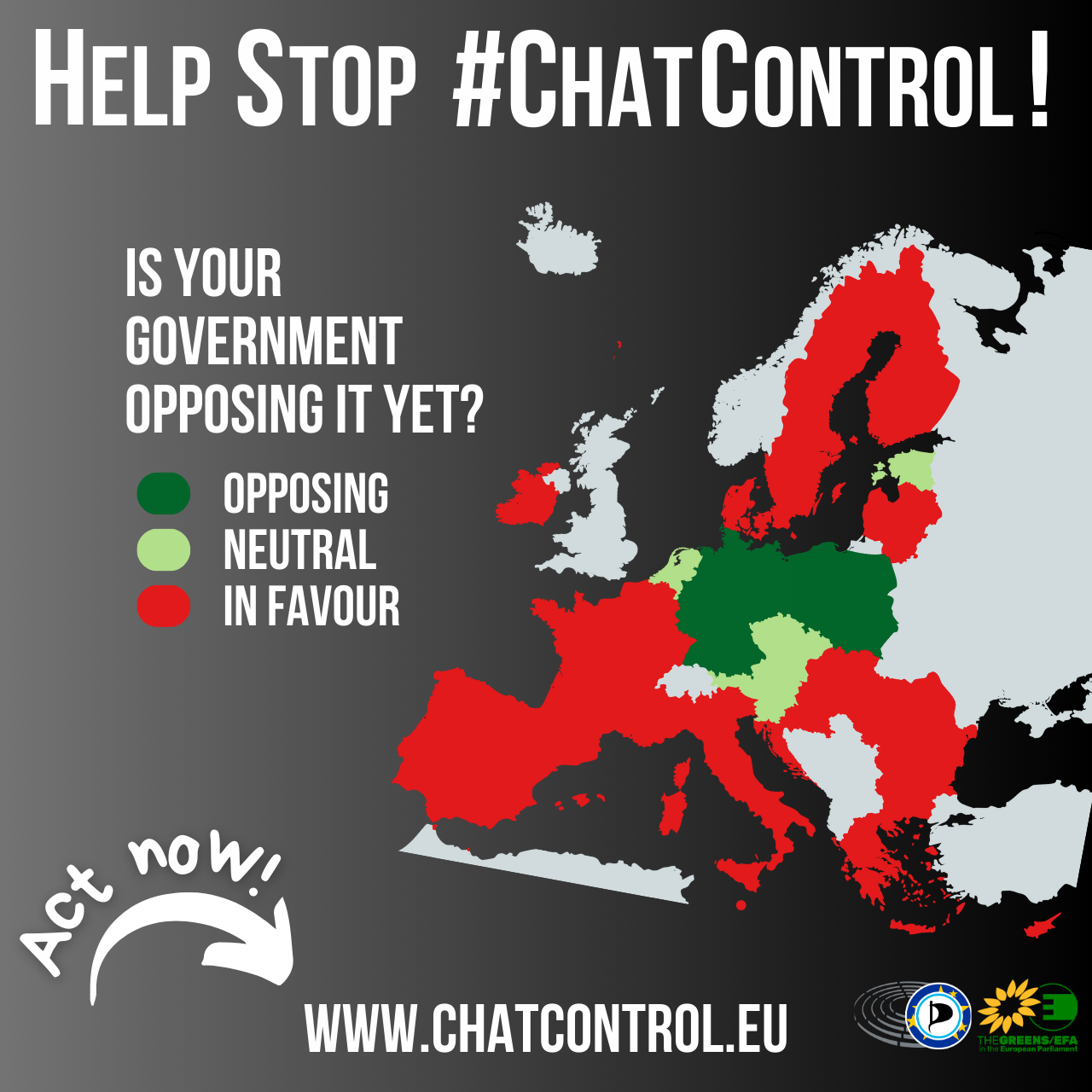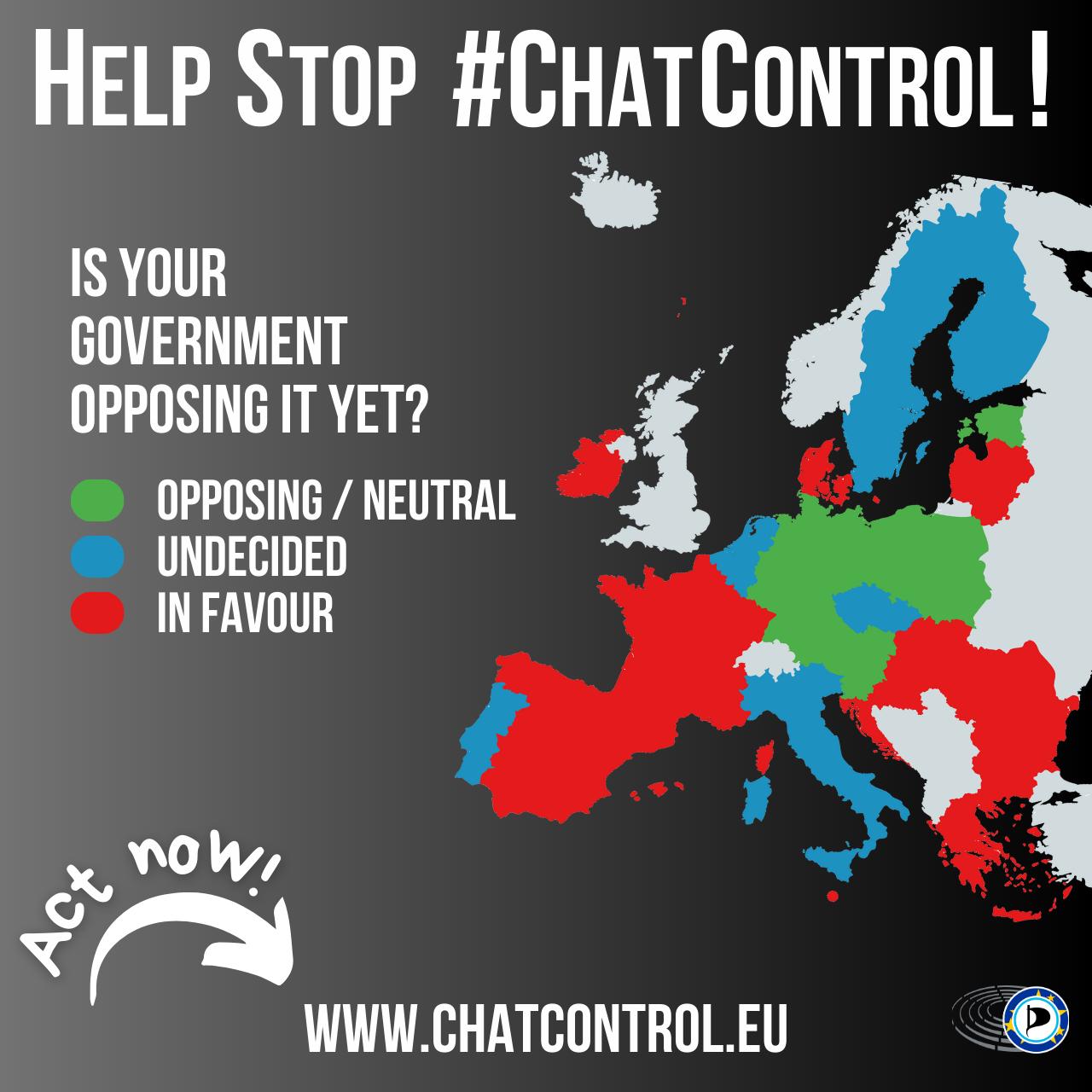Chat control vote postponed: Huge success in defense of digital privacy of correspondence!
Today EU governments will not adopt their position on the EU regulation on “combating child sexual abuse”, the so-called chat control regulation, as planned, which would have heralded the end of private messages and secure encryption. The Belgian Council presidency postponed the vote at short notice. Once again the chat control proposal fails in Council. Pirate Party MEP, digital freedom fighter and negotiator for his group in the European Parliament, Patrick Breyer, cheers:
“Without the commitment and resistance of countless individuals and organizations in Europe, the EU governments would have decided today in favour of totalitarian indiscriminate chat control , burying the digital privacy of correspondence and secure encryption. A big thanks to all who have contacted politicians and spoken out in the past few days. The fact that we have prevented the orwellian chat control for the time being should be celebrated!
For now the surveillance extremists among the EU governments and Big Sister Ylva Johansson have failed to build a qualified majority. But they will not give up and could try again in the next few days. When will they finally learn from the EU Parliament that effective, court-proof and majority-capable child protection needs a new approach?
Now the critical governments should finally do their homework and agree on a joint list of requirements. It is not enough to defend encryption. The indiscriminate, error-prone screening of private messages is the most toxic part of the draft regulation, but the problems go far beyond that. We therefore need a new approach that focuses on preventive child protection instead of mass surveillance and paternalism! The last ‘compromise proposal’ put forward by the Council Presidency needs to be fundamentally revised in at least 4 points:
1) No indiscriminate chat control: Instead of blanket message and chat control, the judiciary should only have the power to order searches in the messages and uploads of suspects. This is the only way to avoid a disproportionate mass surveillance order inevitably failing in court and achieving nothing at all for children.
2) Protect secure encryption: So-called client-side scanning to infiltrate secure encryption must be explicitly ruled out. General declarations of support for encryption in the text of the law are worthless if scanning and extraction take place even before encryption. Our personal devices must not be perverted into scanners.
3) Protect anonymity: Remove mandatory age verification by all communications services to save the right to communicate anonymously. Whistleblowers risk being silenced if they have to show ID or face to the communications service before leaks.
4) No app censorship and digital house arrest for young people: It is completely unacceptable to exclude young people from apps such as Whatsapp, Instagram or games in order to protect them from grooming. Instead, the default settings of the services must become more privacy-friendly and secure.
The push for indiscriminate chat control is unprecedented in the free world. It divides child protection organizations, abuse victims, other stakeholders and governments. It’s time for a fresh start that relies on consensus, as proposed by the European Parliament. I am convinced that we can protect children and all of us much better.”
Background:
According to the latest text proposal users of apps and services with chat functionalities wouldbe asked whether they accept the indiscriminate and error-prone scanning and, if necessary, leaking of their privately sent images, photos and videos. Previously unknown images and videos would also be screened using “artificial intelligence”. If a user objects to the scanning, they would no longer be able to send or receive any images, photos, videos or links (Article 10). Despite paying lip service to encryption, end-to-end encrypted services would have to implement chat control by installing monitoring functions that are to take effect “before data transmission” (so-called client-side scanning, Article 10a). The scanning of text messages for indications of grooming, which has hardly been used to date, has been removed from the proposal, as was the scanning of voice communication. The chats of employees of security agencies and the military would be exempted from the error-prone chat control scanners.
At a meeting on 24 May, the Council’s Legal Service made it clear that mass chat monitoring without suspicion is still being proposed and remains a violation of fundamental rights.
On 16 June it has been revealed by Der SPIEGEL that most of the chats leaked voluntarily by US-based Big Tech companies are not criminally relevant.
Further information:
The wording of today’s voting proposal:
https://www.patrick-breyer.de/wp-content/uploads/2024/06/csam_cleaned.pdf
The European Parliament’s approach to protecting children online:
https://www.patrick-breyer.de/en/posts/chat-control/#epmandate
How we would be affected by chat control:
https://www.patrick-breyer.de/en/posts/chat-control/#how-does-this-affect-you
Myths/arguments in favour of chat control debunked:
https://www.patrick-breyer.de/en/posts/chat-control/#Myths
Arguments against chat control:
https://www.patrick-breyer.de/en/posts/chat-control/#AdditionalInformation
Why message and chat control is particularly harmful to children and victims of abuse:
https://www.patrick-breyer.de/en/posts/chat-control/#why-messaging-and-chat-control-harms-children-and-abuse-victims
Alternatives to chat control:
https://www.patrick-breyer.de/en/posts/chat-control/#alternatives



